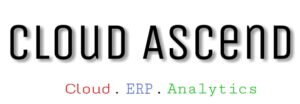Looking Beyond ROI
By Manish Tiwari

Many businesses running on legacy ERP are planning to modernize their ERP System by migrating to cloud-native, microservices/API based architecture. ERP Cloud offers a technology edge to transform the business, enhance customer experience, and simplify the architecture. Since many of the ERP cloud systems are still evolving, such a move requires a careful assessment of several parameters. You may like to assess ERP Cloud’s ability to address your requirements, how the customizations that you built in legacy ERP to address some of the unique needs would be taken care of if they are essential to your business and competitive edge.
Functionality Fitment
ERP Cloud from many leading vendors such as Oracle has matured a lot in recent years. However, there are still significant gaps in functionality available in ERP Cloud vis a vis on-premise ERP Systems. It may prove counterproductive migrating to ERP Cloud, which does not offer all features that are currently leveraged in your legacy ERP. Just for an example, you have extensive service procurement requirements or using property manager to manage your rental and in case similar functionality is not available in ERP Cloud yet. You should reconsider your decision to migrate as it would significantly impact your business activity and team’s productivity . Cloud Ascend Platform helps you assess functionality fitment of ERP Cloud (currently for Oracle ERP Cloud). It checks whether all the functionalities implemented in Oracle EBS are available in Oracle ERP Cloud. It provides you confidence that Oracle ERP Cloud would meet your business need. Another important aspect is also to consider new functionality available in ERP Cloud and benefits you would get by leveraging them.
Disposition of Customizations (CEMLI)
ERP Systems are customized over a period of time to meet the unique requirements of the business. These customizations could be reports, integrations with boundary applications, extensions to automate processes. Also quite possible that some of the customizations that were built earlier for business needs are no longer needed due to change in the business process or similar functionality available in the later versions of ERP system. It is imperative to have an analysis of these customizations, which of these customizations would be required going forward and how those essential customizations would be implemented in ERP Cloud. Such an analysis can help in preparing a more accurate migration plan. Cloud Ascend Platform provides a workbench to help analyze customizations in detail and develop the most accurate disposition plan.
Total Cost of Ownership (TCO)
Many people recommend a start-small/ fail-fast approach for transformation projects. While this approach is advisable for the majority of cases, ERP modernization cannot be done with this approach. Primarily because ERP Systems are complex systems, and integrated systems and benefits cannot be realized from the incremental approach. It is way too costly to implement a part of the system and then build temporary interfaces with other applications to support the end to end process. An upfront cost-benefit analysis based on all aspects of cost structure and TCO over a period of 5-7 years with ROI must be established for any ERP Cloud project. Accuracy of such analysis is vital for ERP Cloud as you do not validate this further with incremental projects. Cloud Ascend Platform also provides a workbench to calculate TCO and ROI over a period of time.
While all these factors are necessary to decide upon migration to ERP Cloud and have always been looked into, the automated platform brings a new dimension by ensuring that all these aspects are covered comprehensively and not left open to human discretion and interpretation. Cloud Ascend platform gives you a jump start in planning and decision support for migrating to the cloud, balancing the adoption of new features and functionality against the cost of change to maximize investments in Oracle Applications. Cloud Ascend provides objective insights – customer-specific requirements & usage and helps in reducing assessment cycle time. Cloud Ascend enables superior customer experience – optimal engagement and actionable insights in the form of graphical fitment & ROI report on cloud adoption.
